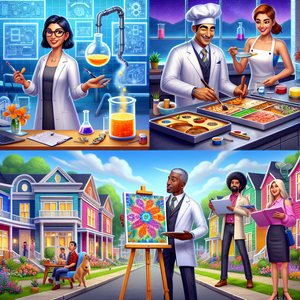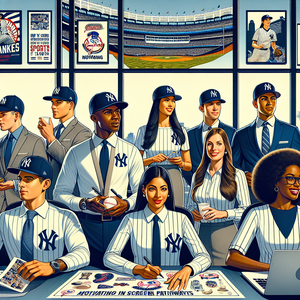The Evolution of Career Paths in The Sims Franchise

In the original The Sims, players encountered a limited selection of careers, which included traditional roles such as "Business" and "Military," along with more whimsical options like "Gamer" and "Slacker." The career progression was straightforward, primarily based on skill-building and work performance. Players could help their Sims climb the corporate ladder by fulfilling job-related tasks, but the storytelling aspect was minimal, offering little in terms of personalized narratives. The Sims 2 marked a significant upgrade in the career system. The introduction of expanded career paths, such as "Education," "Criminal," and "Entertainment," allowed players to explore a wider variety of professional experiences. Additionally, the incorporation of aspiration and personality traits added depth to career choices, enabling players to create more personalized narratives for their Sims. Unique rewards and challenges tied to specific jobs encouraged exploration, fostering a richer gameplay experience that considered not only the career but also the Sims' aspirations and personalities.
The Transition to The Sims 3: Open World and Greater Flexibility
With the release of The Sims 3, the career system reached new heights through the introduction of an open-world environment and more nuanced interactions. Players could now explore their neighborhoods without the constraints of loading screens, offering greater freedom in how they approached careers. Self-employment options, such as "Gardener" and "Writer," emerged, allowing players to create their own businesses and work from home, reflecting a shift towards more flexible career paths. The addition of lifetime wishes encouraged players to pursue specific career-oriented goals, creating a deeper connection between gameplay and player aspirations. Professions like "Inventor" and "Architect" further enriched the experience, enabling players to engage in side activities to enhance their careers. The narrative aspect blossomed, with career-related story arcs that intertwined with the lives of the Sims and their families, adding layers of complexity to the gameplay.
The Sims 4: Innovative Careers and Societal Reflection
The Sims 4 introduced yet another evolution in the career system, embracing modern themes and innovative gameplay mechanics. The game featured an extensive range of careers, including freelancing options that reflect the gig economy of today. Players could take on roles such as "Freelance Writer" or "Artist," allowing for greater creativity and flexibility in career choices. A standout feature in The Sims 4 is its emphasis on career storylines. Each career now has its own narrative arc, providing players with an immersive experience as they navigate the highs and lows of their Sims' professional lives. For example, the "Tech Guru" career incorporates themes of innovation and technology, while the "Culinary" career highlights creativity and personal expression through cooking. Moreover, The Sims 4 has made strides in representing diverse career options that resonate with contemporary societal issues. The "Social Media" career reflects the rise of digital influencers, showcasing the impact of social media on modern careers. Meanwhile, the "Paranormal Investigator" career taps into the popularity of supernatural themes in contemporary media, demonstrating the franchise's responsiveness to cultural trends. This evolution illustrates how The Sims 4 not only entertains but also engages players in current societal discussions, fostering meaningful connections between gameplay and real-world experiences.
The evolution of career paths in The Sims franchise serves as a fascinating lens through which to view the changing landscape of gaming and societal values. From the simplistic offerings of the original game to the rich, narrative-driven experiences found in The Sims 4, the career systems have continuously adapted to reflect players' desires for complexity, engagement, and personal storytelling. As players navigate the myriad of career options available, they are not only shaping the lives of their Sims but also engaging with broader themes of work, creativity, and societal change. The Sims franchise remains a testament to the power of simulation gaming, allowing players to explore varied life experiences and narratives through their virtual characters, all while mirroring the evolving nature of careers in the real world.
Game Designer
Electronic Arts, Ubisoft, Blizzard Entertainment
Core Responsibilities
Create and develop game concepts, mechanics, and narratives tailored for player engagement.
Collaborate with artists, programmers, and writers to bring game ideas to life.
Conduct playtesting sessions to gather feedback and iterate on game designs.
Required Skills
Proficiency in game design software such as Unity or Unreal Engine.
Strong understanding of gameplay mechanics and player psychology.
Excellent communication and teamwork abilities.
Narrative Designer
BioWare, Naughty Dog, Telltale Games
Core Responsibilities
Craft engaging storylines and character arcs that enhance player immersion in games.
Collaborate with game designers to integrate narrative elements seamlessly into gameplay.
Develop dialogue and scripts for characters, ensuring they resonate with players.
Required Skills
Strong writing and storytelling skills, with a focus on interactive narratives.
Experience in scriptwriting or narrative development for video games.
Familiarity with branching story structures and player choice mechanics.
User Experience (UX) Researcher
Riot Games, Epic Games, Activision
Core Responsibilities
Conduct user research to understand player behaviors, needs, and pain points within games.
Analyze data and provide insights to inform game design and improve player experience.
Collaborate with designers to create intuitive and enjoyable game interfaces.
Required Skills
Experience in qualitative and quantitative research methods.
Strong analytical skills with an ability to interpret data effectively.
Knowledge of user-centered design principles.
Freelance Writer (Gaming Industry)
IGN, Kotaku, GameSpot
Core Responsibilities
Produce engaging content such as reviews, articles, and guides related to video games.
Collaborate with gaming companies to create promotional content and narratives for games.
Stay updated on industry trends and player interests to inform writing topics.
Required Skills
Excellent writing and editing skills with a passion for gaming.
Ability to adapt writing style to target different audiences.
Experience with SEO best practices for online content.
Digital Marketing Specialist (Gaming)
Square Enix, Bethesda, Bandai Namco
Core Responsibilities
Develop and implement marketing strategies to promote video games and engage players.
Utilize social media, email campaigns, and online ads to reach target audiences effectively.
Analyze campaign performance and adjust strategies based on data insights.
Required Skills
Proficiency in digital marketing tools and analytics platforms.
Strong understanding of gaming culture and player demographics.
Creative thinking and problem-solving skills.


